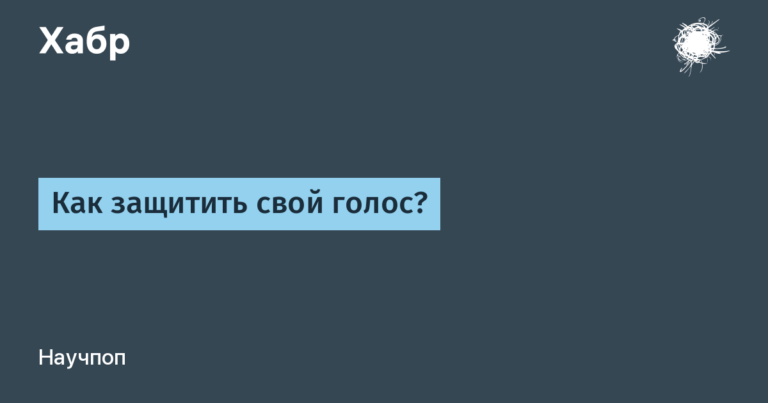Perhaps Viktor Pelevin is using GPT-generated texts to announce a new novel?
Every year at the end of summer, the Russian literary world wonders if a new book by Viktor Pelevin will be released, and what will it be about? For example, last year the intrigue heated up to the limit. And this year – silence. But not quite silence – generated texts appeared on several sites, which, perhaps, are a kind of “game with the reader” on the eve of a new novel. Or not? Let’s try to analyze.
GPT models predicted in iPhuk 10
The hero of the novel iPhuk 10 for the first time becomes an artificial intelligence who works as a detective and at the same time writes books. The author’s interest in the topic of artificial intelligence, as we can see, is huge. And, suddenly, right after the release of the last novel, KGBT+, GPT-3, as well as his “brothers” and “distant relatives” “shoots”…
Pelevin is a writer on the topic of the day, he will certainly weave several recent trends and key events into the fabric of his works. And if the new novel comes out in the fall, the topic of artificial intelligence should again become key!
Perhaps this will be a continuation of the adventures of AI from iPhuk 10 (why not – the good “universe”, as it is customary to call the previously created and described world to the smallest detail, disappears).
It is unlikely that this will be a continuation of the obviously unsuccessful “Love for Three Zuckerbrins”, where the author also dabbled with the topic of IT – when discussing, criticizing the latest novels by Viktor Pelevin, this book is usually not even remembered …
Silence and some sites with absurd texts
So far, when you try to type something like “Pelevin’s new novel 2023” in a search engine, links are poured out (oh, at least someone in this world is getting enough sleep!) Or to old novels (especially to the sensational KGBT +, about which they wondered for a long time whether it would come out or not ), or to some obscure sites with enticing names:
Having opened and started reading the text on any of these links, the reader will guess that the text was generated by Chat GPT or a similar grid, or, if the reader is a humanist and has not dealt with neural networks, he will think that the text was written by a seventh grader who is only familiar with Pelevin’s texts by hearsay. And these texts will not report any news about the new novel.
In general, the texts are such that in any case the reader (be it a techie or a humanist) will spit, swear and close the browser window. I imagine precisely an advanced reader who is interested in the release of a new book by Pelevin and has typed such a request in a search engine.
What’s wrong with the generated texts?
But, in my opinion, these texts specially written forso that the one who opens them does not begin to read to the end, leaving after a few paragraphs.
First, all sites have a similar simple design. The texts are quite similar (we will look at this a little later). The likelihood that the creation of these texts was directed by one person is, in my opinion, extremely high. You can examine the site data, but I think it’s overkill.
Secondly, none of these sites has anything to do with art (unless you take a long elastic band, make it a big stretch and consider it as such podelkisvoimirukami.ru), no decent site such would not post.
Thirdly, – and this is the most interesting – all texts contain a maximum of “water” and general streamlined phrases characteristic of most writers (and there are tons and tons of this):
In his new book, Pelevin raises important issues of our time and addresses current topics. He uses elements of fantasy to explore the edges of reality and pave the way for readers to new, unexplored worlds. The author embodies his ideas in an original form that makes the reader think and rethink the surrounding reality.
Pelevin’s new book is not only a fantastic guide, but also a literary work that opens up new facets in the world of words. The writer used his unique style and language to take readers to another dimension where the lines between fantasy and reality are blurred. This novel will be a real challenge for readers who are ready to immerse themselves in an unknown world and discover new facets of literature.
But wait a second – how did it happen that not one of the GPTs, who selected each word taking into account the probability of its occurrence next to the name Pelevin, ever threw us a werewolf in kilobytes of text (a couple of times, however, he Meets in the title of the previous book), no vampire, no discourse, no hennelore, no sura, no goddess, no monit, no dough or bablos?
Why didn’t the eighth grade editor who opened Wikipedia work with any of the texts, and from there would sketch out characteristic “Pelevin” words for us?
You can argue, but such long and maximally “desalinated” texts, in my opinion, could not be issued by a neural network upon request with the word “Pelevin”, and could not be finalized by a budget editor. I guess the texts cleaned and “desalinated” by hand.
In addition, it is possible that obvious, conspicuous errors were deliberately thrown into some texts, which should force the reader to close the text without reading it to the end (somewhere Pelevin is named Sergei, somewhere obviously leftist titles are added to the list of his books).
But why?
Where does a smart person hide a leaf? In the forest. But what should he do if there is no forest?
“Yes, yes,” said Flambeau irritably, “what should he do?
“He is planting a forest to hide the leaf,” the priest said in a hushed voice.
In general, I had a suspicion that these texts, issued at the request of “Pelevin’s new novel 2023”, are a specially planted forest. And if so, then the same sheet should be hidden in it.
What is this leaf?
Perhaps this is a reference to the title of the book or one of the novels, stories, essays that will be in it (usually there are several works in Pelevin’s books). So, it could be:
“No friends yet” and “Mirror Crazy”, which are mentioned Here (at the very end of a long text! – for those who overcame themselves and finished reading / scrolled)
“Intellectuals” and “Police Corps”, which are named books published in 2023 Here
“Strip Games”, “May”, “Sector of the Hourglass”, “2023”, mentioned Here
“Baba Yaga against”, mentioned Here
Perhaps this is an allusion to the main character – at the end long boring water text suddenly:
The main character in Pelevin’s new work is Yaroslav the Wise, Grand Duke of Kievan Rus. This is a historical figure who lived in the X century and is considered one of the most prominent rulers of Rus’. Ruling the principality, Yaroslav the Wise accomplished many significant deeds, leaving his mark on history.
In Pelevin’s work, Yaroslav the Wise appears in a completely different light. The writer embodies it in the image of a modern person who finds himself in an unusual situation or environment. This allows Pelevin to ask questions about the art of management, the meaning of power and the role of a leader in society.
Perhaps the words “werewolf”, “vampire” have been purged from these texts, since the new novel will be about AI, for example, a continuation / from the iPhuk 10 universe (similar to how KGBT + was a continuation / from the universe of Transhumanism Inc.).
For what? For example, in order to embed the narrative of a new book into reality (look, this has been hinted at on several sites!). Or in order to show that the title of the new book has already flashed on the Internet, just before it underscrolled.
A bit of theory
We are used to (since the recent moment that happened less than a year ago!) to separate all texts on the Internet into (1) written by a living person and (2) generated by a neural network. At the same time, we understand that some texts (3) were written by a living person, but based on material accumulated by a neural network.
It may be necessary to introduce another category – (4) texts written by a neural network, but modified by a person so that it seems to everyone that they are still written by a neural network…
What about Exmo?
The publishing house that publishes books by Viktor Pelevin is still intriguing: suggests re-reading old novels by V.P., and at the same time – Chaika Chekhov, Anna Lev, PiN FD, and L. from V.N.





